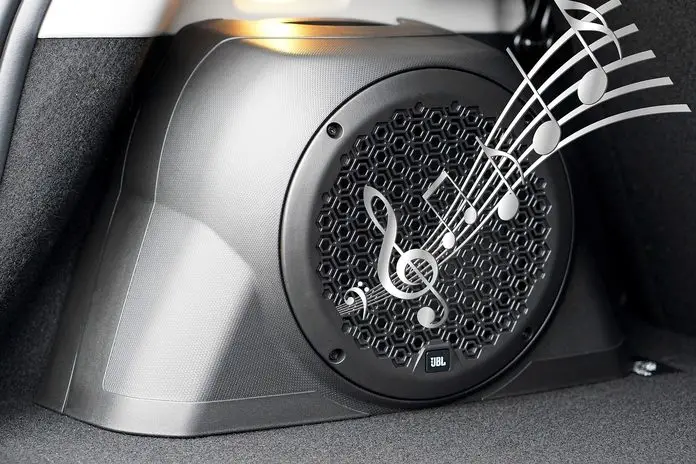
“Cruising down the street in my ‘64” is an activity that not only belongs to rappers, more so from the West Coast, such as Easy E. Every person who owns a car that’s worth taking a second look at would love to do that slow roll down the street, it doesn’t matter whether it’s in the suburbs or business districts.
One distinctive feature of these cars is their audio systems. Most of these are usually aftermarket installations that give cub sound systems a run for their money. These systems need some pretty serious amounts of power for them to be able to put out as much bass as they do.
So, is it advisable to put an extra battery for car audio system? Yes, definitely. It is possible to install a second battery (and here is how), and most people do as this is a cheaper way. A second battery allows your powerful audio system to receive enough power to pump out as much bass as the amps and subs are rated for.
To gain a better understanding into how this would work, we’ll need to take a deep look into how a vehicle’s electronics are powered.
1. Alternators
So, you’ve noticed that whenever your favorite song bass drops, the headlights of the vehicle begin to dim with every note that hits. It looks like disco lights that are synced to the beat. You could also have observed that when you are playing music, other electrical systems are also sluggish.
This gremlin like behavior of the car’s electrical systems when you’re playing music is as a result of the audio system being an extra load on the vehicle’s alternator. In simple terms, in an electrical system, a load is when a piece of equipment is drawing power from a source. In this case with the alternator, the car’s electrical systems are its load.
An alternator is a major component of a car. When you hit the ignition key, power is drawn from the battery to the starter, which will then cause the engine to crank. It is the job of the alternator to recharge the battery back to its fully charged position.
The alternator, being the component used to generate electrical power, is also what is powering your vehicle’s electrical systems such as power windows and headlights. The power rating of these alternators is enough to recharge a car’s battery and power other systems that were installed at the factory during manufacture.
Most stock alternators are therefore not able to power any other systems outside of factory equipment. This means that hooking up your powerful amps and subs to the power system will cause an overload, and the alternator will not be able to power all the systems hooked up to it.
When this overload occurs, the extra power requirements will be met by the car’s battery. This presents a challenge as the alternator will begin to overwork as it tries to recharge the battery which is being drained quickly.
In cases where the power drawn from the battery is higher than the alternator can recharge the battery, the battery loses charge and can become flat. This can leave you stranded in the middle of nowhere when your engine goes off and you can’t start your car.
One solution people go for is to just go for an aftermarket alternator that is capable of generating more power to be used by electrical systems. However, these alternators can be quite expensive to buy.
It is for this reason why the second battery begins to make sense.
2. Capacitors
For those of us who are lovers of physics or with an interest in audio systems, a capacitor may have already come to mind. In simple terms, a capacitor is a device that can store an electrical charge when it is connected to a power source.
“But isn’t that the same thing a battery does?” Yes, that is exactly the same thing a battery does. However, there are fundamental differences in how they store charge, operate and what they’re used for.
A battery usually stores charge in chemical form. What this means is there are chemical components inside the battery that take in electrical energy and convert it to chemical energy. The opposite is true when releasing charge. A capacitor on the other had simply stores electrical energy as it is through the use of an electrostatic field in the metal plates.
A capacitor is able to do this as it is made of different types of metals that are separated by a non-conducting material, also known as dielectrics.
Whereas batteries take a long time to take in charge and also release charge, a capacitor charges rapidly also gives out the charge at a very high rate. This makes capacitors perfect for powering high voltage electricals such as amplifiers.
Although capacitors are widely used in a number of different electrical appliances such as TVs and radios, they may not be the best when it comes to using it as a power source. This is mainly because they are low energy density when compared to batteries of similar size.
What this means is that a battery can store much more energy than a capacitor. The result is that capacitors capable of powering an amplifier and subs are generally quite large and take up a lot of space. The other downside is that capacitors cost a pretty penny, so much more than batteries would cost.
So, Should You Use a Battery?
Music is the only truly universal language and also a therapeutic tool. Considering the cost and complexities that accompany installing a capacitor, or even getting an aftermarket high output alternator, a battery is the only cost-effective way of powering your audio systems without compromising the electrical system.
However, installing a second battery should not be deemed to be a fix for a faulty battery. If your primary battery was experiencing issues with charging, a second battery will not alleviate the issue and you will still need to have it replaced.
Sources:
1. Difference between Capacitor and Battery – Difference Between Similar Terms and Objects
2. Multiple battery strain on alternator – Steve Meade Designs (SMD)
3. Alternator, how it works, symptoms, testing, problems, replacement – Samarins.com





